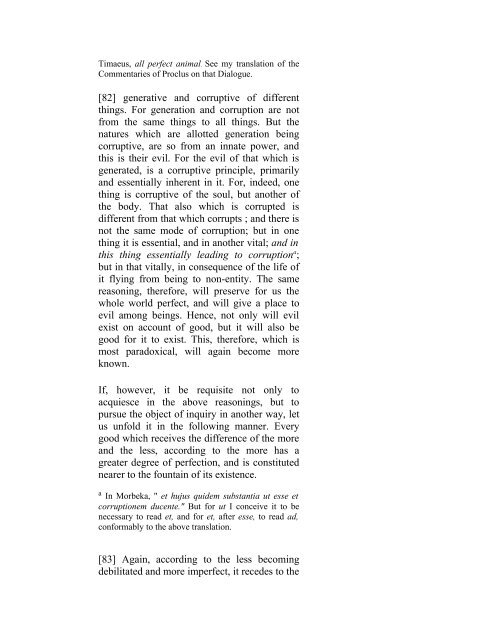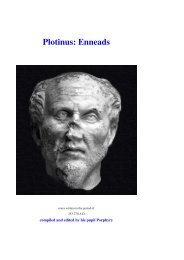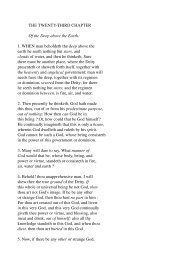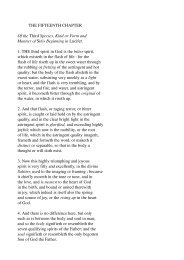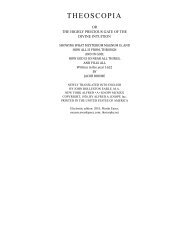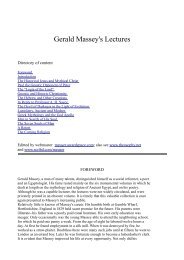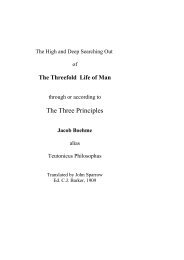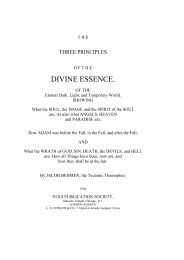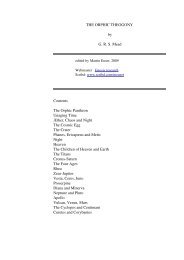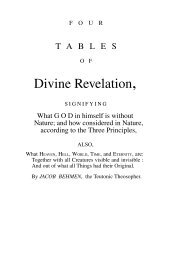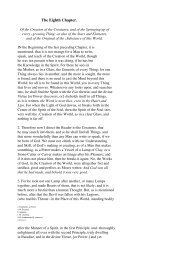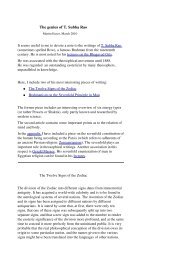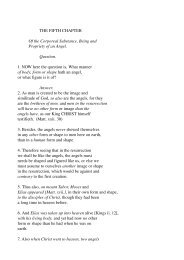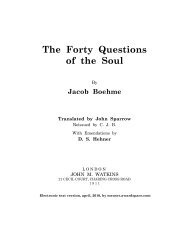PROCLUS, THE PLATONIC SUCCESSOR
PROCLUS, THE PLATONIC SUCCESSOR
PROCLUS, THE PLATONIC SUCCESSOR
Create successful ePaper yourself
Turn your PDF publications into a flip-book with our unique Google optimized e-Paper software.
Timaeus, all perfect animal. See my translation of the<br />
Commentaries of Proclus on that Dialogue.<br />
[82] generative and corruptive of different<br />
things. For generation and corruption are not<br />
from the same things to all things. But the<br />
natures which are allotted generation being<br />
corruptive, are so from an innate power, and<br />
this is their evil. For the evil of that which is<br />
generated, is a corruptive principle, primarily<br />
and essentially inherent in it. For, indeed, one<br />
thing is corruptive of the soul, but another of<br />
the body. That also which is corrupted is<br />
different from that which corrupts ; and there is<br />
not the same mode of corruption; but in one<br />
thing it is essential, and in another vital; and in<br />
this thing essentially leading to corruption a ;<br />
but in that vitally, in consequence of the life of<br />
it flying from being to non-entity. The same<br />
reasoning, therefore, will preserve for us the<br />
whole world perfect, and will give a place to<br />
evil among beings. Hence, not only will evil<br />
exist on account of good, but it will also be<br />
good for it to exist. This, therefore, which is<br />
most paradoxical, will again become more<br />
known.<br />
If, however, it be requisite not only to<br />
acquiesce in the above reasonings, but to<br />
pursue the object of inquiry in another way, let<br />
us unfold it in the following manner. Every<br />
good which receives the difference of the more<br />
and the less, according to the more has a<br />
greater degree of perfection, and is constituted<br />
nearer to the fountain of its existence.<br />
a In Morbeka, " et hujus quidem substantia ut esse et<br />
corruptionem ducente." But for ut I conceive it to be<br />
necessary to read et, and for et, after esse, to read ad,<br />
conformably to the above translation.<br />
[83] Again, according to the less becoming<br />
debilitated and more imperfect, it recedes to the


